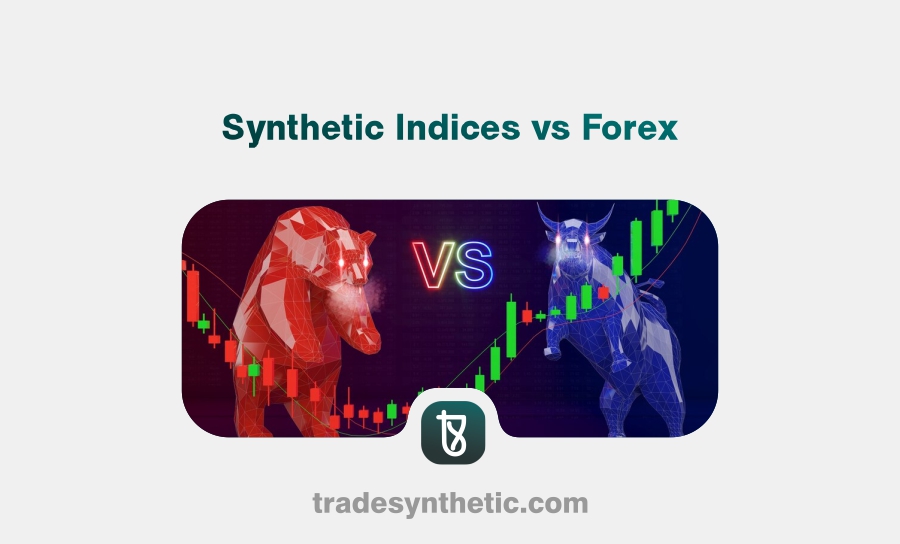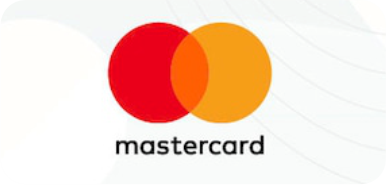When deciding where to trade in financial markets, many traders find themselves comparing synthetic indices vs forex. While both offer opportunities for profit, they are fundamentally different in how they operate, the risks involved, and the strategies required for success.
In this article, we will take into consideration the differences and similarities between synthetic indices and forex trading to help you make an informed trading decision.
What Are Synthetic Indices?
Synthetic indices are financial instruments designed to mimic real market conditions using algorithms. They are not affected by external factors like news or economic events, making them unique compared to forex.
Features of Synthetic Indices
- No External Influences
Unlike forex, synthetic indices are unaffected by geopolitical events or central bank policies.
- Round-the-Clock Trading
Synthetic Indices can be traded 24/7 without interruptions.
- Fixed Volatility
Synthetic indices often have predefined volatility levels, such as Volatility 75 Index or Crash 500.
What Is Forex?
Forex, short for “foreign exchange,” involves trading one currency against another. It is the largest and most liquid financial market globally, driven by economic factors, geopolitical events, and global trade.
Features of Forex
- Market Influences
Currency values are influenced by interest rates, inflation, political stability, and more.
- High Liquidity
The forex market operates 24 hours a day, five days a week, with enormous trading volumes.
- Currency Pairs
Traders deal with major, minor, and exotic currency pairs (e.g., EUR/USD, GBP/JPY).
Similarities Between Synthetic Indices and Forex
Synthetic indices and forex share several similarities, making them appealing to traders familiar with either market. Here are their similarities:
- Leverage Trading
Both markets allow traders to use leverage, enabling them to control larger positions with smaller capital investments.
- Use of Technical Analysis
Traders rely on similar tools, such as charts and indicators (e.g., RSI, MACD), to analyze market movements and make decisions in both markets.
- Volatility and Liquidity
Both markets can experience high levels of volatility, presenting opportunities for quick profits or losses. Liquidity is also high in forex, and synthetic indices simulate similar conditions.
- Trading Platforms
Popular trading platforms like MetaTrader 5 support both synthetic indices and forex, providing access to advanced features and automated trading tools.
Difference between Synthetic Indices and Forex
While both markets involve speculation on price movements, they differ significantly in their structure and trading dynamics.
-
a) Market Influence
- Synthetic Indices: Operate independently of global events, making them predictable to some extent.
- Forex: Strongly influenced by news, economic data, and geopolitical events.
-
b) Trading Hours
- Synthetic Indices: Available for trading 24/7.
- Forex: Operates 24/5, with a break on weekends.
-
c) Volatility
- Synthetic Indices: Have fixed volatility indices (e.g., Volatility 10, Volatility 75), allowing traders to choose their risk level.
- Forex: Volatility depends on market conditions and external events, making it unpredictable at times.
-
d) Leverage and Risk
- Synthetic Indices: Often have higher leverage, which increases risk but also potential rewards.
- Forex: Leverage is regulated, especially in certain regions like the EU and the US.
-
e) Pricing Transparency
- Synthetic Indices: Prices are algorithmically generated and free from market manipulation.
- Forex: Prone to slippage and price manipulation due to high market liquidity and broker involvement.
Pros and Cons of Synthetic Indices
Pros
- No Market Manipulation: Prices are algorithm-driven, ensuring fairness.
- Round-the-Clock Trading: You can trade at any time, even on weekends.
- Consistency: Fixed volatility levels make it easier to plan trades.
Cons
- High Leverage: This increases the risk of significant losses.
- Limited Asset Variety: Synthetic indices lack the diversity of forex currency pairs.
- Less Established: Compared to forex, synthetic indices are relatively new.
Pros and Cons of Forex Trading
Pros
- High Liquidity: Forex is the most liquid market in the world.
- Wide Range of Instruments: You can trade major, minor, and exotic currency pairs.
- Global Recognition: Forex trading is a well-established and regulated market.
Cons
- Market Manipulation: Prone to price manipulation by large institutions.
- External Influences: Currency prices can change drastically due to news or economic reports.
- Trading Gaps: These can occur when the market reopens after weekends or holidays.
Which Market Is Best for You: Synthetic Indices or Forex?
The choice between synthetic indices and forex depends on your trading goals, risk tolerance, and experience.
Consider Synthetic Indices If:
- You want to avoid external market influences.
- You prefer trading on weekends or during unconventional hours.
- You are comfortable with algorithm-driven instruments.
Consider Forex If:
- You enjoy analyzing global economic trends.
- You prefer trading in a highly liquid and established market.
- You want access to a wide range of currency pairs.
Conclusion
The debate between synthetic indices vs forex comes down to personal preference, trading objectives, and risk tolerance. Synthetic indices provide a consistent and controlled environment, while forex offers opportunities driven by global market movements. Understanding the unique features of each market can help you make the best choice for your trading journey.
Frequently Asked Questions
Are synthetic indices better than forex?
- It depends on your trading style. Synthetic indices are better for traders who want a predictable environment, while forex offers opportunities influenced by global events.
Can I trade synthetic indices and forex simultaneously?
- Yes, many traders diversify by participating in both markets to balance risk and opportunity.
What makes synthetic indices signals accurate?
- The accuracy of synthetic indices signals depends on reliable technical analysis tools and market conditions.
Are synthetic indices riskier than forex?
- Synthetic indices can be riskier due to higher leverage and fixed volatility. However, forex also has risks due to external influences and market gaps.
Do synthetic indices require a different trading strategy?
- Yes, synthetic indices require strategies tailored to their unique characteristics, such as fixed volatility and independence from news events.










